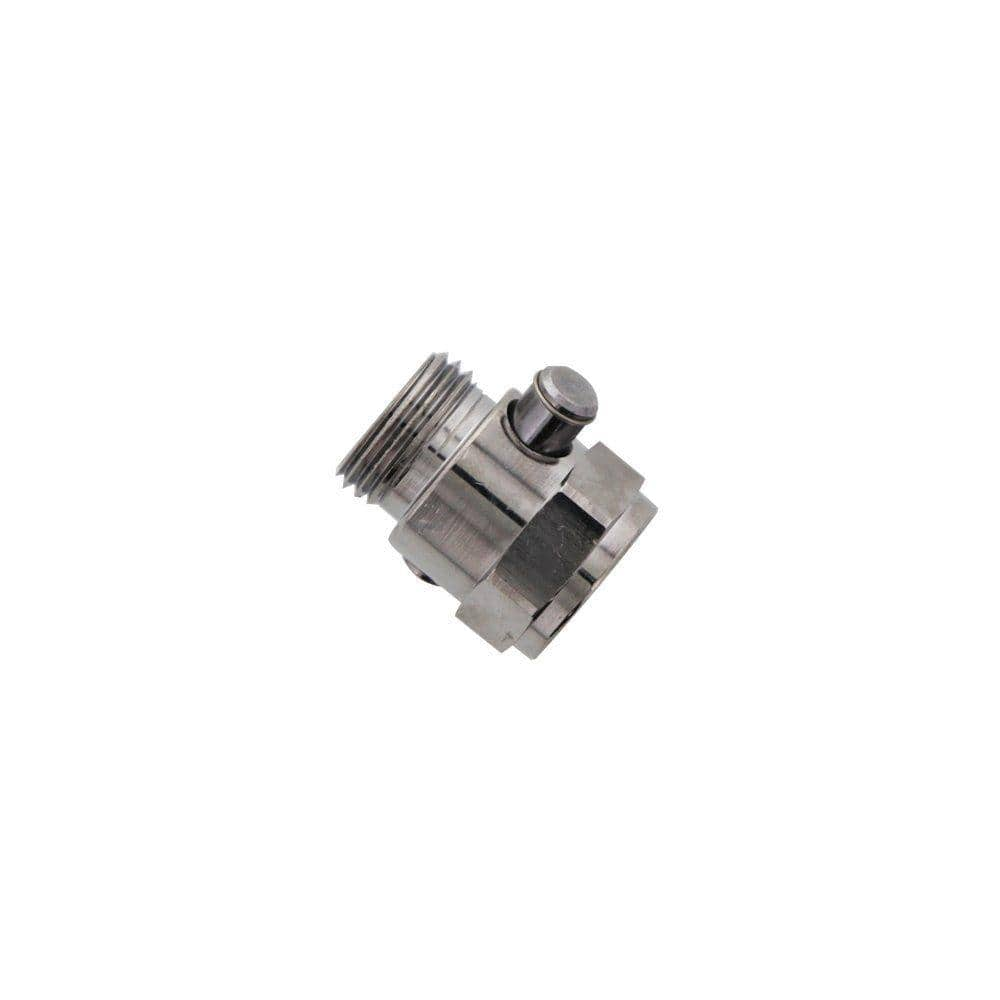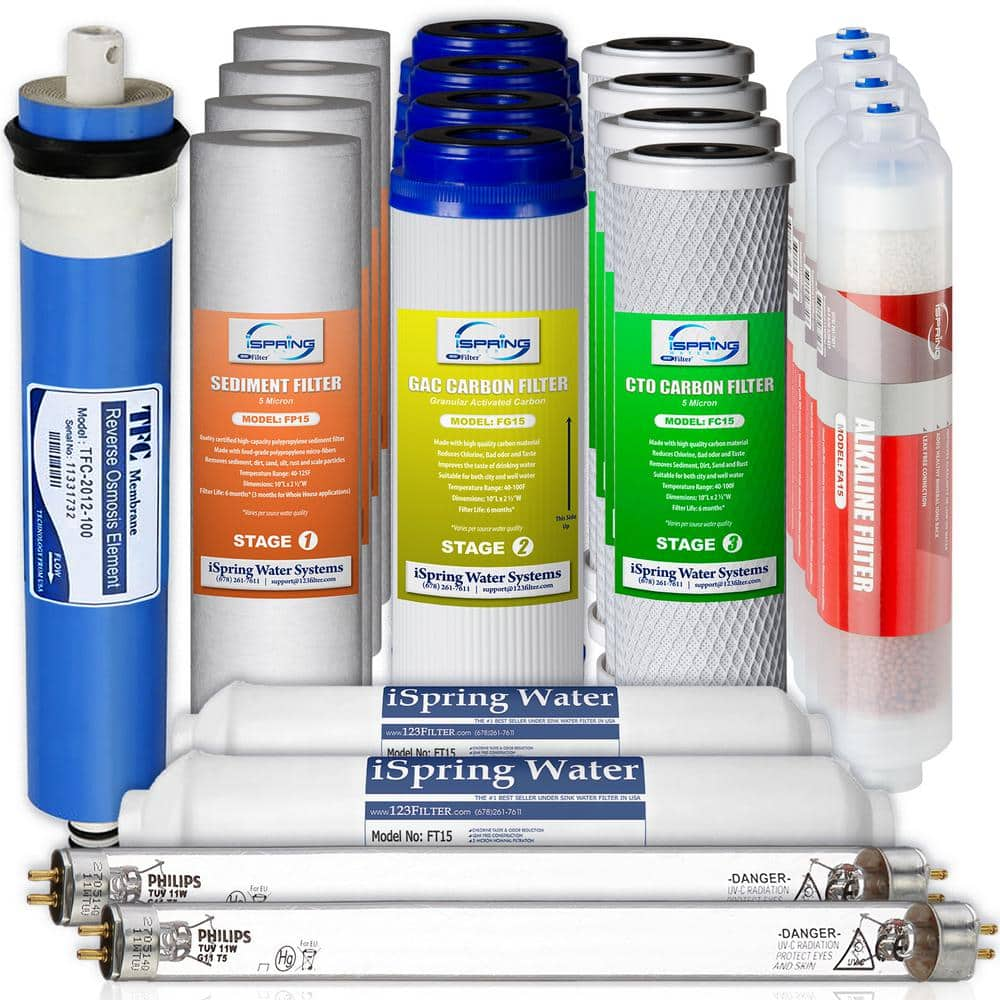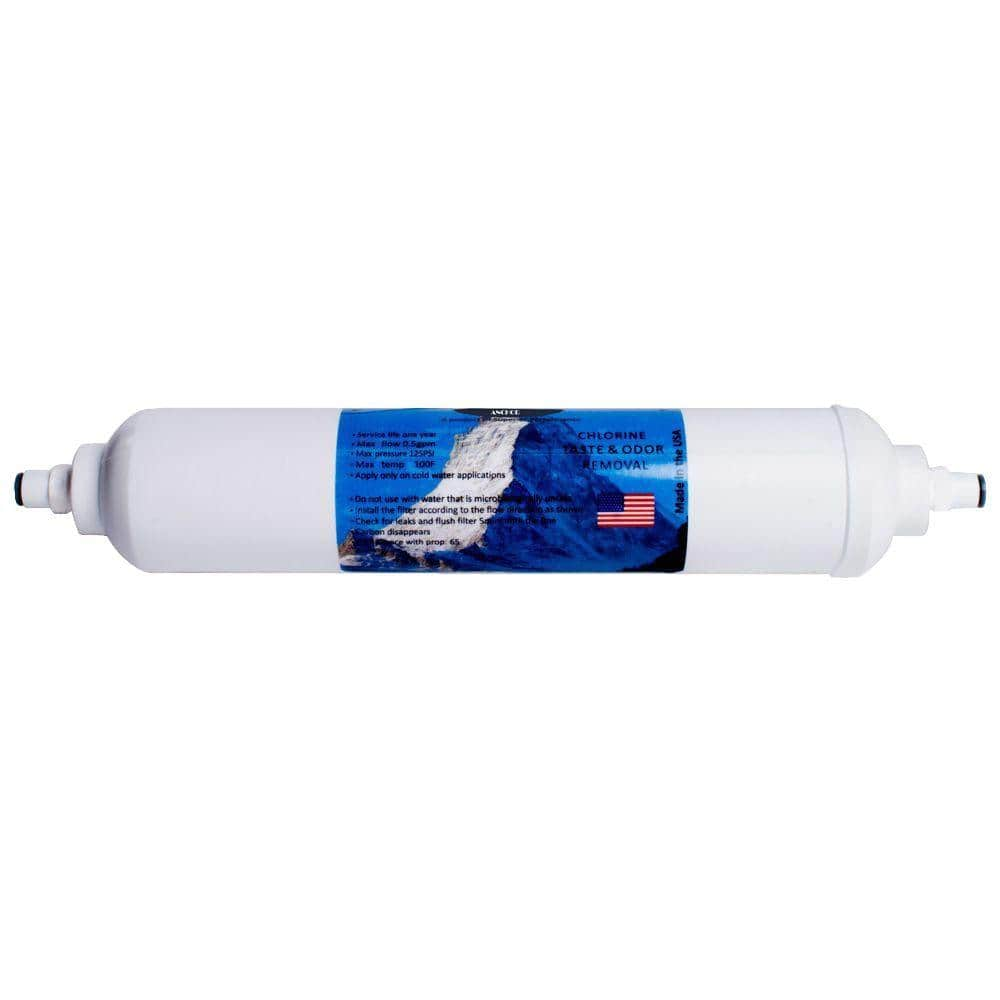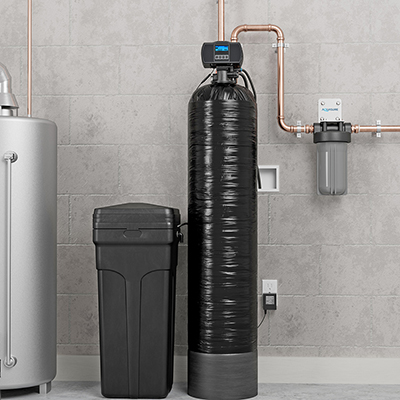Common Types of Water Filters and How They Work
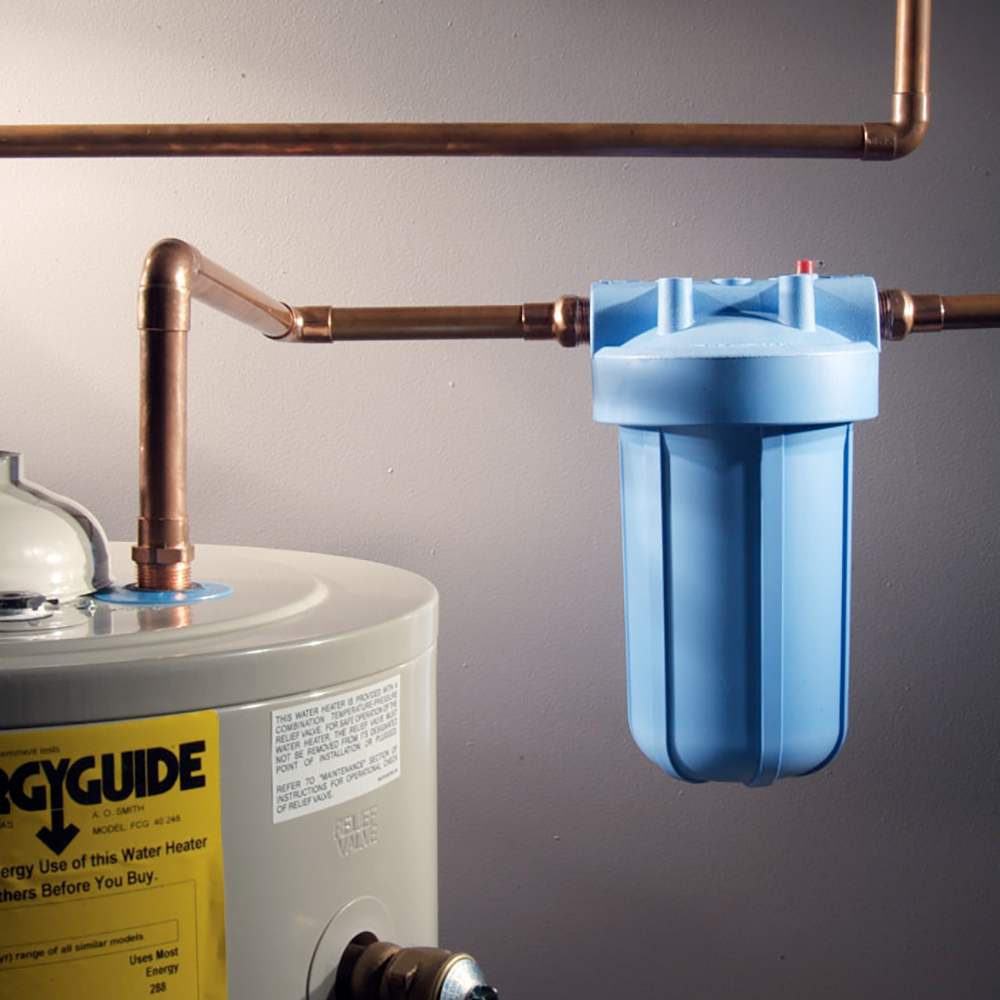
Last updated September 7, 2023
There are many types of water filters to choose from and most do not require a major renovation or big investment of time and money. Shower head filters can be installed by beginner DIYers in minutes. More complex systems might require professional know-how. The Home Depot has a water treatment installation service for whole house water filtration systems.
Use this guide and comparison table to help you choose the best water filters for your home, by understanding what contaminants are removed and how they work.
Table of Contents
How to Choose a Water Filter
Water Filter Contaminants
How Water Filters Work
How to Choose a Water Filter
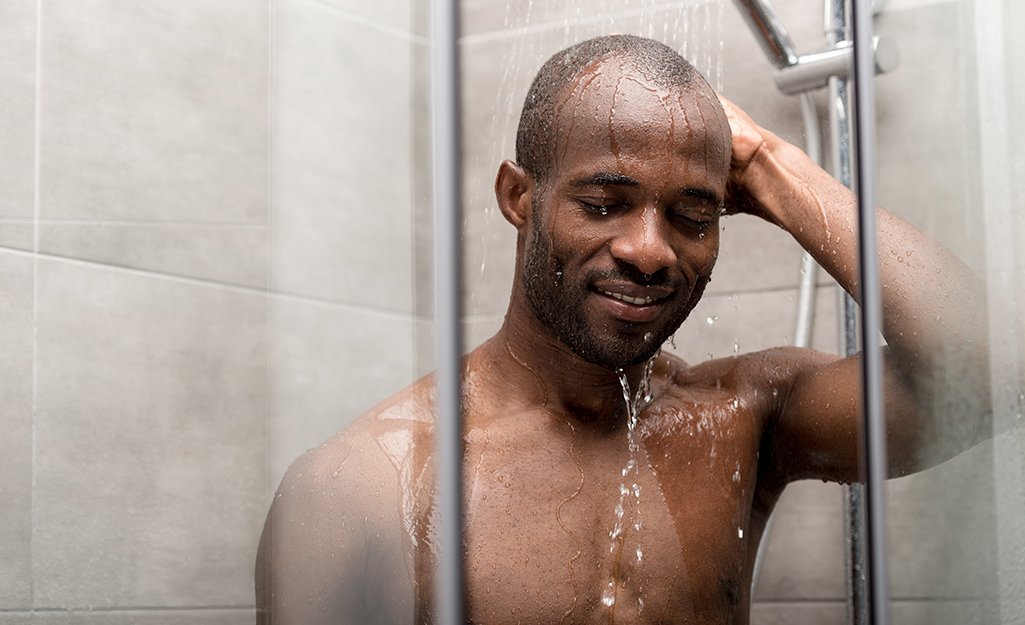
Choosing a water filter for drinking, cooking, bathing and washing is easy with so many available options, but you can make the job easier with a little bit of planning and research. Narrow down your search for a water filter system by asking yourself a few basic questions:
- Do you want to treat all of the water coming into your home, or just your drinking water?
- What kind of contaminants are you most concerned about?
- How many people live in your household?
Knowing about your water supply when choosing a water filter is also important. Your home’s water supply is sourced by either the city or a private well:
- City water: Public water supplies are relatively safe, but they may contain hundreds of contaminants that aren’t regulated by the Environmental Protection Agency. Because of ruptured pipes or other contaminations, you may have to deal with city-issued boil notices more frequently than you’d like.
- Private wells: Homeowners with private wells have their own sets of unique water concerns. A variety of treatment options may reduce harmful organisms and contaminant levels while improving sediment filtration, water softening and more.
Water Filter Contaminants
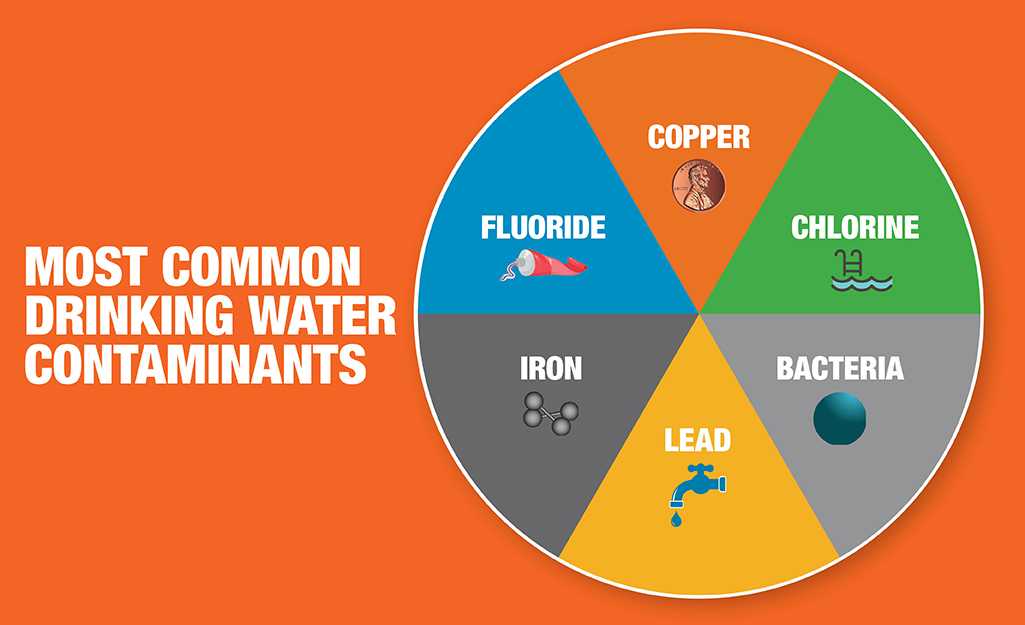
The many different water contaminants range from arsenic and fluoride to heavy metals and pathogenic bacteria. Factors like plumbing, water runoff and the age of your home may mean that you’re dealing with a particular water contaminant—but your neighbor may be dealing with a completely different type. Here are six of the most common water contaminants that home water filters target:
- Bacteria: Not all types of bacteria are harmful, but pathogenic bacteria can make you sick. Harmful bacteria can enter your water supply from runoff, a fractured well casing or broken lines.
- Chlorine: Chlorine is often used in municipal water treatment to disinfect the supply. Leftover chlorine compounds coming from your tap may have an unpleasant taste or smell and can cause dry, itchy skin.
- Copper: Copper is an essential element found in rock, soil and water. Corrosion of copper pipes in your home can boost the concentration of this element in your water. Drinking water that contains high levels of copper can cause gastrointestinal issues.
- Fluoride: Fluoride is added to most public water supplies to reduce tooth decay throughout the community. But too much exposure to the natural mineral at a young age might increase risk of a cosmetic condition that causes dark streaks or spots on teeth.
- Iron: High levels of naturally occurring iron in your water produces a metallic taste and smell. It can stain your toilet, sink, bathtub and even the dishes and clothing you wash in the water.
- Lead: Lead usually gets into a water supply by leaching from lead service lines or other parts of the plumbing system, such as the lead solder for joining copper pipes or even brass- and chrome-plated faucets f. Young children and pregnant women are particularly vulnerable to adverse health effects from lead.
Tip: To find the best water filter to remove potentially harmful contaminants from your home, use a water test kit. Then, purchase a water filtration system that’s made to target the contaminants you’re dealing with.
How Water Filters Work
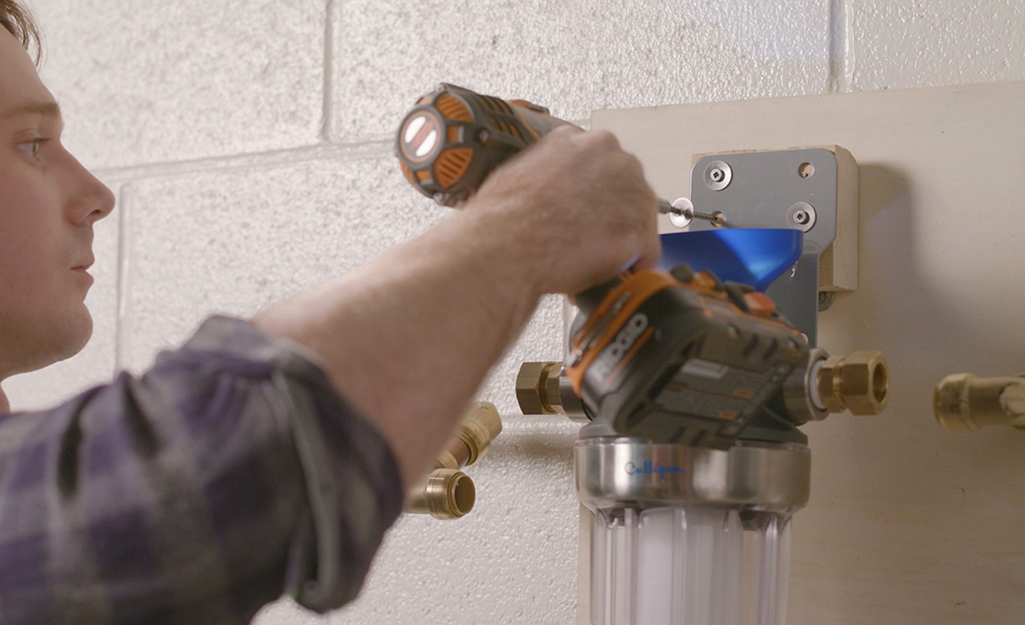
When determining which filter is best for your home and family, it’s helpful to know how each type works. Different types of water filters use different methods to remove or destroy contaminants:
- Ultraviolet light: Water is exposed to ultraviolet radiation from UV filters, which destroy various bacteria that could be potentially dangerous to your health. UV filters work without additional heat or chemicals.
- Carbon block and activated carbon: A carbon block water filter removes larger particles from water by attracting and absorbing sediment or silt. A carbon water filter is used in many types of filters, including faucet water filters.
- Sand and sediment mesh: Mesh filters remove dirt, clay, sand and rust particles before they reach the rest of your plumbing system, including expensive appliances and your faucet.
- Reverse osmosis: A reverse osmosis water filter forces water through a semi-permeable membrane. This removes contaminants and impurities from drinking water.
- Infrared: Infrared technology uses heat and light to negatively charge hard water. As with alkaline filters, the water treated with an infrared filter has a softer feel, similar to water that passes through a water softener.
- Alkaline and water ionizers: Water passes over electrically charged plates, separating the alkaline water from the acidic water. The result is softer water that’s more suitable for drinking—and better for your skin when bathing.
Tip: When installing and using a water filter, read the manufacturer’s label carefully to determine what contaminants are removed from the water filtration system. Not every method of filtration will remove all contaminants to purify water.
While there are plenty of home water filters and filtration systems to choose from, the good news is that most don’t require a major renovation or a huge investment, as they generally won’t affect your flow rate. For example, most homeowners can install a shower head filter within a matter of minutes. More complex water filter systems, like whole-home options, might require the expertise of a professional.
The type of water filtration system you need will largely depend on your goals. Whether you’re dealing with a poor flow rate, a sediment issue that gives your water a brownish appearance, or another problem, you can choose from a variety of home water filters and water filter systems to improve your water conditions.
The Home Depot carries a large inventory of water filters and filtration systems, along with all of the supplies you’ll need to install it. Use The Home Depot Mobile App to shop from the comfort of your own home or locate items in the store.


